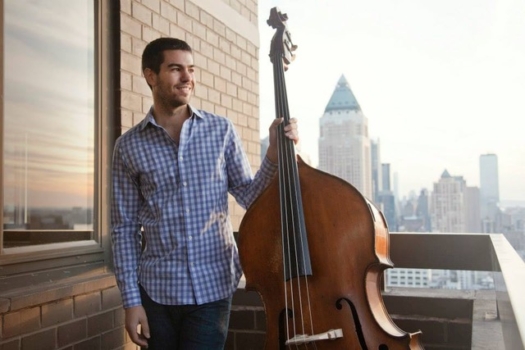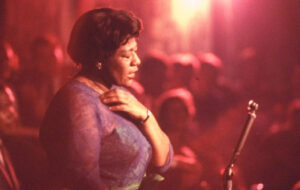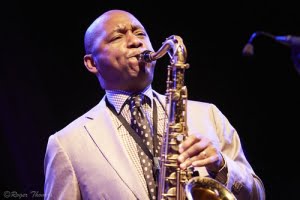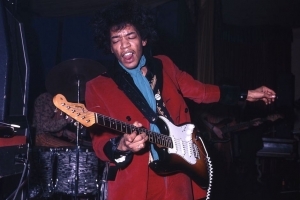Jazz interview with jazz cointrabassist Raviv Markovitz. An interview by email in writing.
JazzBluesNews.com: – First let’s start with where you grew up, and what got you interested in music?
Raviv Markovitz: – I grew up outside of Boston, Massachusetts, and my father plays the piano and the clarinet. My earliest memories are of us playing piano together, and later, playing together with me on bass and him on piano. Any time I was near an instrument, he would come over and sit down next to me!
JBN: – How did your sound evolve over time? What did you do to find and develop your sound?
RM: – I think that my sound evolved naturally over time, just in terms of who I was playing with and the kind of music that I liked to listen to, and continues to evolve every day. Starting as early as middle and high school, I had a core group of friends all extremely interested in music, and we listened to all kinds of music for hours after school – all of this music just naturally influenced me and molded me throughout the years.
JBN: – What practice routine or exercise have you developed to maintain and improve your current musical ability especially pertaining to rhythm?
RM: – I’ve done a fair amount of transcribing and playing along to records – both of which I think have helped my rhythmic feel tremendously. I think that people sometimes think that transcribing is solely based on notes, but in learning the most possible, getting inside the rhythmic feel of the musicians is equally (or more) important. I also think that the more people you play with, the more flexible and well-rounded you become, and learn naturally to adapt to the rhythmic feel of others.
JBN: – How to prevent disparate influences from coloring what you’re doing?
RM: – I think it is important to soak up as many different sounds, colors, and ideas from all of the artists that you love, and then those colors naturally blend into your playing and you make them your own. The great bassist John Clayton once told me, “imitate, assimilate, innovate.” The more that you grow as a musician, you become a product of all of your influences and the music that you love to listen to, and this produces a new, unique sound that becomes your own.
JBN: – How do you prepare before your performances to help you maintain both spiritual and musical stamina?
RM: – I try and take a deep breath and relax, and to keep it light-hearted! In the end, it is just music, and I’m fortunate to get the chance to make music with some of my best friends regularly. In these instances, there is a low-stress environment and a warmth that is created, and the music and performance flows naturally.
JBN: – Ism is culled from a variety of lives dates with various performers over the course of a few years. Did your sound evolve during that time? And how did you select the musicians who play on the album?
RM: – Many of the musicians on the album I’ve been playing with since high school, and some before then! They are some of my closest friends, both personally and professionally, and people that I respect highly as musicians and individuals. I was honored and extremely happy that they were able to take part in the album.
JBN: – What’s the balance in music between intellect and soul?
RM: – I’m not sure! But I think they must be intertwined and interconnected.
JBN: – There’s a two-way relationship between audience and artist; you’re okay with giving the people what they want?
RM: – I think that there is a middle ground – maintaining the integrity of the music while appeasing the audience at the same time. Hopefully, in the best of circumstances, the audience is coming to hear the music that you love to play, and the two overlap.
JBN: – Please any memories from gigs, jams, open acts and studio sessions which you’d like to share with us?
RM: – The previous year was a great year of music and travel, including some great gigs in China with Benny Benack III and in Egypt with Chad Lefkowitz-Brown. I also had the opportunity to record on Eldar Djangirov’s new trio album (along with Jimmy Macbride on drums). All of the above musicians are actually on my album as well, and I hope that once life begins to resume as normal the music and travel will as well!
JBN: – How can we get young people interested in jazz when most of the standard tunes are half a century old?
RM: – That’s a great question – I think one component is definitely music education at a young age, both at home and in the schools. There’s so much great music out there today, in the jazz world and beyond, and mixing and blending of genres, that I think that there are many artists within the jazz sphere that play music that everyone can relate to. It’s just a matter of finding the parts that someone connects with and exposing him or her to it.
JBN: – John Coltrane said that music was his spirit. How do you understand the spirit and the meaning of life?
RM: – I can’t say that I have a good answer for that, but if Coltrane said that, that is good enough for me!
JBN: – If you could change one thing in the musical world and it would become a reality, what would that be?
RM: – I would love for jazz to be more known and popular worldwide. I think that there’s often a misconception that it’s inaccessible or hard to understand, but at this point there’s such a great deal of blend between genres, and I truly believe there are elements for everyone to latch on to and connect with. At its best, it’s both emotionally meaningful, intellectually complex, rhythmically strong, and yet accessible to the common ear.
JBN: – Who do you find yourself listening to these days?
RM: – I’ve found myself listening recently to a lot of music that I grew up on again – Christian McBride, The Yellowjackets, etc. – some of my favorite artists from the very beginning!
JBN: – What is the message you choose to bring through your music?
RM: – In general, I try to be as honest as possible and to play what I hear in the moment – hopefully that conveys whichever message to come across subconsciously. I try as much as possible to be in the moment, and I find that the best music making experiences are ones in which outside thoughts and distractions are kept to a minimum.
JBN: – Let’s take a trip with a time machine, so where and why would you really wanna go?
RM: – Honestly, I’m just taking one day at a time, living in the present, and putting one foot in front of the other – we’ll see where that takes me!
JBN: – I have been asking you so far, now may I have a question from yourself…
RM: – Sure! In your estimation, what would be most beneficial to the jazz world at this point? For example, earlier music education in schools, a wider audience, more performance opportunities, etc.?
JBN: – A wider audience, more performance opportunities in the my Jazz festivals In Eastern European countries !!! 🙂
JBN: – So putting that all together, how are you able to harness that now?
RM: – I’m very happy that I was able to get my first release as a leader out to the world, and am looking forward to all that the future will bring. Thank you for your time!
Interview by Simon Sargsyan







More Stories
Traces of the past and lost tracks – Booker Ervin – The In Between: Videos, Photos
The moment of truth at Ella Fitzgerald’s concert 58 years ago… Video, Photos
Branford Marsalis has become increasingly sought after as a featured soloist with acclaimed orchestras: Video